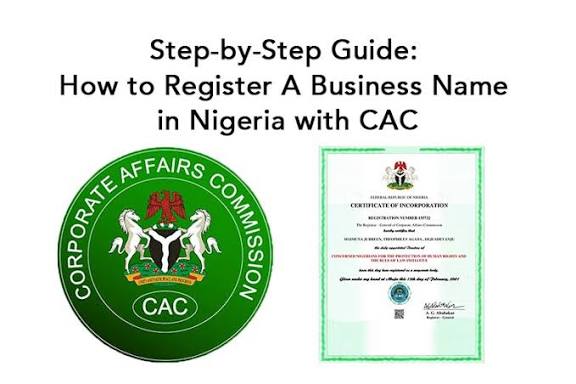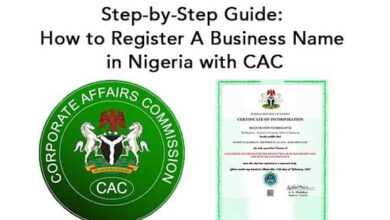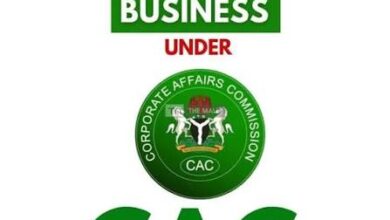How to Verify CAC Business Certificate if it’s Legit

The Corporate Affairs Commission (CAC) of Nigeria is the sole government authority responsible for registering businesses and issuing certificates of incorporation. However, with the rise of fraudulent certificates and unverified businesses, it is essential for individuals and organizations to know how to confirm whether a CAC business certificate is genuine or fake. In this detailed guide, we will break down everything you need to know about verifying a CAC business certificate in 2025.
Why Verifying CAC Business Certificate Matters
A CAC business certificate is more than just a document—it represents legal recognition of a business entity in Nigeria. Unfortunately, many scammers produce counterfeit certificates to deceive unsuspecting clients and investors. Verifying CAC business certificates ensures:
- Authenticity of the business entity
- Legal protection in case of disputes
- Trustworthiness of potential business partners
- Compliance with regulatory and financial institutions
Official Tools for CAC Certificate Verification
The CAC has made it easy for individuals and businesses to verify company records through its CAC public search portal. Using this portal, you can verify business names, RC numbers, and incorporation details.
Additionally, companies can be cross-verified through other agencies like the Federal Inland Revenue Service (FIRS) for tax identification records, or even banks during account opening processes.
Read Also: How to Become a CAC Accredited Agent in Nigeria 2025 Guide
Step-by-Step Guide to Verify CAC Business Certificate
Here’s how to check if a CAC business certificate is authentic:
- Visit the CAC Public Search Portal.
- Enter the Company Name or RC Number provided on the certificate.
- Click the search button to fetch results.
- Compare the returned details (business name, type, date of registration, and status) with what is written on the certificate.
- If the record does not exist, the certificate may be fake.
Using the RC Number for Verification
The RC (Registration Certificate) number is unique to every registered business in Nigeria. To confirm authenticity:
- Check if the RC number matches with the business name in CAC’s official database.
- Confirm that the business status is active and not dissolved.
- Ensure the date of registration aligns with the certificate issued.
Red Flags of a Fake CAC Business Certificate
Be cautious of the following signs when reviewing a CAC certificate:
- Certificate number not found on CAC’s portal
- Mismatch between business name and RC number
- Poorly printed or altered certificate design
- Incorrect signatures or missing CAC seal
Read Also: CAC Accreditation Requirements 2025
Third-Party Verification Methods
Beyond the CAC portal, you can also verify certificates through:
- Banks during corporate account openings
- FIRS for cross-checking Tax Identification Numbers (TIN)
- Legal professionals and accredited CAC agents who have access to corporate filings
Importance of CAC Verification for Businesses and Investors
For entrepreneurs, verifying CAC certificates protects against scams and ensures compliance when entering into contracts. For investors, it confirms that their capital is being placed into legally recognized entities. For consumers, it helps avoid fraud when transacting with businesses online or offline.
How Technology Has Improved CAC Verification
In recent years, the CAC has digitized much of its verification system, making it easier and faster for anyone to check a certificate online. This transformation aligns with Nigeria’s broader move toward digital governance and transparency in business operations.
With the CAC official website, users now have access to multiple online services including incorporation, certificate downloads, and public searches.
Read Also: How to Get CAC Business Certificate Online in 24 Hour
Legal Implications of Using Fake CAC Certificates
Using a forged CAC certificate is a criminal offense in Nigeria and can result in legal prosecution, fines, or imprisonment. Regulatory authorities like the Economic and Financial Crimes Commission (EFCC) often investigate such fraudulent practices. Therefore, businesses and individuals must ensure proper verification before entering into any agreement.
Conclusion
Verifying a CAC business certificate is an essential step for anyone engaging in business in Nigeria. With the rise of fraudulent certificates, using the CAC public search portal and other verification channels is the best way to ensure a business is legitimate. Always cross-check RC numbers, verify company status, and consult accredited CAC agents if in doubt. By doing so, you protect yourself, your business, and your financial interests.




